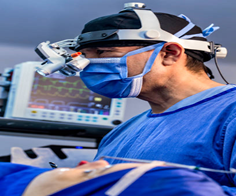
Did you know that 10% of the general worldwide adult population deals with shoulder pain? That it’s the third most common kind of musculoskeletal discomfort (exceeded only by neck and lower back soreness)? For many people, experiencing shoulder strain are feeling the result of dysfunction or weakness in the stabilising muscle of the shoulder – the rotator cuff. All types of shoulder aches and causes, such as poor posture from desk overuse to elite athletes throwing arm, can be treated by a specialize physiotherapist like Evoker, answering your burning questions is one of our highest priorities! So, without further ado, here is an explanation in all-things shoulder pain.
Shoulder discomfort often takes over slowly, developing and manifesting over time. However, it can also be the reaction to sudden traumatic injury, such as falling on to an outstretched hand or making direct contact with the shoulder. Generally, direct contact occurs from crashing to the ground in a rugby tackle, or “dumping” in the surf. Direct trauma are usually very painful, and result in limited degrees of movement in the arm. People who experience shoulder pain generally describe the slower-onset as a dull ache with pain radiating from the upper arm to the bicep; a sharp pinching sensation; unease moving their arm side-to-side or above their head; for women, discomfort swinging arms behind their backs and clipping a bra, or pain with lying on the bad shoulder at night.
The shoulder muscle is so unstable – you might call it fragile – that anything that offsets our own rotator cuff (the size of a golf ball) can bring other areas of the arm at higher risk of pain, inflammation, and injury. Common shoulder injuries and pathologies include:
- Dislocated shoulder;
- Osteoarthritis (disease that causes the breakdown of joints);
- Rheumatoid arthritis (inflammatory joint disease);
- Torn cartilage.
Let’s Explore Further:
An individual with a dislocated shoulder experiences an injury where their upper arm bone “pops” out of the cup-shaped socket that forms your shoulder blade. I know; I know, it’s gross. The signs and symptoms of a dislocated shoulder include an out-of-place shoulder, swelling and bruising, intense pain, and an inability to move the joint. You may also experience numbness, weakness and tingling close to the injury.
Osteoarthritis, the most common form of arthritis, affects millions of people all over the world. The disease happens when the protective cartilage that cushions the end of bones wears down over time. While Osteoarthritis can be managed, its effect on the joints cannot be reversed. Symptoms worsen over time, comprising of pain, stiffness and tenderness; loss of flexibility, a grating sensation; bone spurs and swelling.
Rheumatoid arthritis is a chronic inflammatory disease that affects more than the joints. For some, the condition is known to damage skin; eyes, lung, heart, and blood vessels. Unlike osteoarthritis, this disease is an autoimmune disorder when your immune system attacks your own body’s tissues. Early-onset rheumatoid arthritis often affects the smaller joints first, such as the joints that attach your fingers to your hands and toes to feet. Symptoms include experiencing tender, swollen, warm joints; joint stiffness that hits hard in the morning; fatigue, fever and loss of appetite.
A strange movement of the arm can result in torn cartilage of the shoulder; in which this muscle is exceedingly susceptible to injury and trauma. Due to over-exertion of the muscle, the cartilage can tear leading to torn ligament of the upper arm. The common types of torn cartilage are bankart lesions (dislocated shoulder); posterior labral tears (shoulder strain that often affects athletes), and SLAP tears.







6 Common Mistakes Women Make in the Gym
Most women undergoing gym workouts want to look and feel good. Their desire to achieve their goals makes them passionate in the gym. However, with misinformation, many women also commit mistakes while working out. Some of them are merely following popular advice and tips from under qualified trainers, as well as what they read on […]